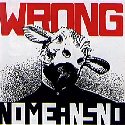|
Bagheera posted:I hope that was sarcastic. Hah, Deadliest Warrior isn't nearly scientifically or historically accurate enough to make it on to the Discovery Channel. It's on Spike TV. So yes, I was being sarcastic.
|
|
|
|

|
| # ? Apr 27, 2024 14:40 |
|
Does anyone know how the Danish/Norwegian military forces changed as the Viking's time ended and they went into the high middle ages?
|
|
|
|
Nova Bizzare posted:Does anyone know how the Danish/Norwegian military forces changed as the Viking's time ended and they went into the high middle ages? Generally, the Scandinavian countries were a bit behind the times when it came to equipment such as armour, but eventually the formation of more centralized countries after the Viking age meant that the armies took on a shape that was similar to othern northern European feudal monarchies. Scandinavia was at that time even more rugged than now, with almost impenetrable deep forests in Sweden and tall mountains everywhere in Norway. Combined with the well developed sailing skills of the population meant that navies were very important for getting armies around. Well equipped infantry played a larger role than in southern Europe for the ease of transporting them and because Scandinavian terrain rarely favoured cavalry. Overall, farmers have generally held more power and more wealth in Scandinavia than in southern Europe, and so the difference in the skill, constitution and equipment between nobles and peasants were not quite as big. Nobles would still fight as knights, but the ratio of cavalry to infantry was smaller. Also they used a lot of crossbows. Some viking equipment such as the big round shields would survive on the battlefields well into the high medieval period. Lamellar armour took over after the chainmail that the Vikings loved so much.
|
|
|
|
lilljonas posted:Lamellar armour took over after the chainmail that the Vikings loved so much. Mail was never replaced by lamellar. The lamellar was used to augment the mail, and very rarely to augment textile armour. However, mail remained by far the most prevalent form of metal armour through the high middle ages, and deservedly so. I also think you overestimate the skill of Scandinavian farmers at war. I doubt very much they were better trained than their Central European counterparts since neither group was heavily used as professional soldiers. Other than that I agree with your assessment. The theme of the high middle ages in upper Scandinavia (Norway and Sweden) is a decline in Scandinavian power abroad. The loss of the Scottish Isles, the defeats in Karelia and Rus' are symptomatic of this decline in the face of other rising powers. True some of the cities recover power thanks to the Hanseatic league, but that, by and large, seems to benefit the Germans and the Novgorodians more than the Scandinavians. In Denmark things are a bit different, typified through the 12th century by forceful Christianisation of the Slavic natives in nearby territories. The man who exemplifies this most is perhaps Archbishop Absalon. It's telling that though his gravestone shows him in episcopal robes, but his statue in Copenhagen shows him armed, on horseback. Denmark expanded Southward too, albeit for a relatively brief period, over the Baltic coast of Pomerania and Prussia. Most often, though, Scandinavian warfare was typified by internal struggle in the High Middle Ages.
|
|
|
|
Rodrigo Diaz posted:Mail was never replaced by lamellar. The lamellar was used to augment the mail, and very rarely to augment textile armour. However, mail remained by far the most prevalent form of metal armour through the high middle ages, and deservedly so. I also think you overestimate the skill of Scandinavian farmers at war. I doubt very much they were better trained than their Central European counterparts since neither group was heavily used as professional soldiers. Other than that I agree with your assessment. Thanks for the correction. My mention of the farmers fighting ability is mostly based on the tradition of relatively independent farmers who are not subjected to as heavy a taxation and feudal pressure as say, those in Spain or France, meaning that they could afford to arm and feed themselves better. As I mostly read about Asian history, the ability of town militias and farmers to form capable fighting units are quite different than the asian counterparts. The success of independent Viking raiders/farmers and the aggressive colonization for farming are also quite different from what I've read about more southern farming populations. So if I had a bunch of Norwegian farmers and a bunch of Spanish farmers from 12th century squaring off, I'd put my money on the Norwegians. One really big issue here is just how difficult it was to get around in most of Scandinavia. The terrain meant that a centralized feudal state took centuries longer to develop than in southern Europe, leaving farmers in a relatively strong position. Serfdom was not so common, and completely outlawed in Sweden in 1335, and we also don't get a real taxation system until the 13th century when the leidung system is removed. So generally, farmers in Scandinavia were better off than farmers in many other countries at the time. But yes, much of Sweden's medieval period was a series of ongoing feuds between families or between brothers (and the occational woman) within the royal families, combined with the slow project of centralizing the state. The ambitious travels of Vikings was replaced with dynastic intrigue, civil war, uprisings and assassinations. It's not really until the Renaissance that Sweden starts to get its poo poo together and project power again. Denmark was far from the only one being busy duking it out with pagans, as Sweden started to expand into Finland during this time, crusading several times in that area. After the Treaty of Nöteborg, most of Finland was a Swedish territory. Granted, this is nowhere near as impressive as when Vikings settled the Danelaw, Dublin, Normandy, Kiev, Greenland etc. lilljonas fucked around with this message at 21:09 on Aug 7, 2010 |
|
|
|
Awesome answers guys. It's great to learn about something not WWII related, and I was wondering how the Danes were able to be power players for several centuries, post Viking age.
|
|
|
|
Chade Johnson posted:Awesome answers guys. It's great to learn about something not WWII related, and I was wondering how the Danes were able to be power players for several centuries, post Viking age. Denmark might be a small country, but it is good for farming and in a very nice position for trade. All maritime trade from the Baltic region and northern Germany to Western Europe had to pass through the narrow Øresund. Don't forget that it wasn't until 1658 that control of the sound was really contested by Sweden, as they took the eastern shores. The taxes levied from trade made up the majority of the Danish royal coffers from the 13th century into modern times, and did a lot to protect Denmark from their larger neighbours.
|
|
|
|
So unbelievably interesting. Favorite Civil War general and why?
|
|
|
|
Cybor Tap posted:So unbelievably interesting. Favorite Civil War general and why? Sherman. Duh. People in the south STILL hate him, to this day.
|
|
|
|
Robert E Lee.
|
|
|
|
I'd have to go with J.E.B Stuart. Fancy plumed hat? Check. Magnificent beard? Check. A cavalier attitude? Check. Sure, he hosed up a bit at Gettysburg but still remains my favorite.
|
|
|
|
Cybor Tap posted:So unbelievably interesting. Favorite Civil War general and why? George Monck. General on land and at sea, spent two years in the Tower writing a book on soldiering, was deemed so good by Cromwell that he was freed from the Tower to fight for Parliament, went on to have a successful career in the Commonwealth and then played the politics game so well that Charles II made him a Duke.
|
|
|
|
Cybor Tap posted:So unbelievably interesting. Favorite Civil War general and why? Sherman, easily. March to the South wasn't even that horrible by any scorched earth or invasion campaings. I mean, not a single person died. Southerners are just pussies.
|
|
|
|
I'm trying to read up on as much Civil War stuff as I can lately. There's something really charming about it to me. I'm not sure why. Shelby Foote seems to love Bedford Forrest. I like me a fightin' general. Despite the whole KKK thing. Any good books I should pick up on the American Civil War? Cybor Tap fucked around with this message at 15:46 on Aug 8, 2010 |
|
|
|
Cybor Tap posted:Any good books I should pick up on the American Civil War? The standards are things like Shelby Foote's anthology, The Killer Angels, Lee's Lieutenants, etc. If you've read those, some more obscure works are The Twentieth Massachusetts, which in my opinion is the single most interesting book on the war, and Fighting for the Confederacy, which was one of the first and remains probably the best memoir from the war. I also have a soft spot for Rifles for Watie if you can stand being seen with a "children's" book. As for the South "winning" or anything close to it, I offer this appeal to authority: "I think that the North fought that war with one hand behind its back. If the Confederacy ever had come close to winning on the battlefield, the North simply would have brought that other arm out from behind its back. I don't think the South ever had a chance to win that war."
|
|
|
|
Zorak of Michigan posted:Those healthy, rested fighters were the only healthy, rested troops in the entire war. Up until then there had been an open question as to who would collapse first. Now that the Allies had hundreds of thousands of completely fresh troops coming up, it was clearly not going to be them. The Americans were only in the war for "a few minutes" because the Germans saw the writing on the wall and called the whole thing off. That's pretty much what I said, isn't it? Though the Germans were already close to throwing in the towel, seeing thousands more enter against them (and although the American soldier was not well thought of at the time, the general American was much healthier, well fed, taller and better built than his Euro counterpart. I think it was Douglas Hague who said he had never seen a finer looking group of men) just speeded that decision up. bewbies posted:I've always been kind of appalled that more hasn't been done on WWI. The nature of the combat was so visceral and personal in nature that it seems like it would be perfect for movies/TV. Instead we appear to need to cover every imaginable element of American involvement in WWII. I think the problem directors worry about with the Great War is that it was such a static war. There isn't much can be done with so much of it in trenches. I know it wasn't all fought from trenches but 95% and all the main battles (except the big Canadian one) were. I agree with you though, I'm sure with a great WWI historian and a director with a great imagination and fascination of the war, something special could come from it. It wouldn't all have to be like the film "The Trench", which was a very good WWI film, actually. Troubled Joe fucked around with this message at 18:07 on Aug 8, 2010 |
|
|
|
Sorry.
|
|
|
|
DarkCrawler posted:Sherman, easily. Sherman was a madman who killed thousands, not by the sword but by the crueler enemy of disease and starvation. He completely destroyed the South, and some parts are still recovering. It boggles my mind how people regard this bloodthirsty war criminal as some kind of twisted hero. "The Government of the United States has in North Alabama any and all rights which they choose to enforce in war – to take their lives, their homes, their lands, their everything . . . . war is simply power unrestrained by constitution or compact.... We will . . . take every life, every acre of land, every particle of property, everything that to us seems proper,"
|
|
|
|
What can you tell me about the Korean war? Yes, I could read wikipedia, but you sound a lot more interesting?
|
|
|
|
Chade Johnson posted:Sherman was a madman who killed thousands, not by the sword but by the crueler enemy of disease and starvation. He completely destroyed the South, and some parts are still recovering. It boggles my mind how people regard this bloodthirsty war criminal as some kind of twisted hero. We have fought seemingly every war since with much bloodier scortched earth tactics and attacks on infrastructure, it's not Sherman's fault that CSA was so incompetant that people were actually starving as opposed to being on lovely rations from his actions... Seriously, the south are the whiniest losing side ever... same people who probably yell at you for "blaming America" if you bring up civilian casualties in a country full of brown people. WTF was McClellan's deal? Not just the battle incompentance, but defending it the rest of his life. You'd think he's say "Sorry I made up whole rebel armies in my head" at some point. He would of been great at a desk though. I agree with Grant, McClellan was the greatest mystery of the war.
|
|
|
|
Thanks for the answers, guys. What did the armies of the Rus look like in the early/high medieval period?
|
|
|
|
KurdtLives posted:We have fought seemingly every war since with much bloodier scortched earth tactics and attacks on infrastructure, it's not Sherman's fault that CSA was so incompetant that people were actually starving as opposed to being on lovely rations from his actions... Seriously, the south are the whiniest losing side ever... same people who probably yell at you for "blaming America" if you bring up civilian casualties in a country full of brown people. I don't see anything in this reply to vindicate Sherman though. Nothing about what you said, in any way, makes what Sherman did as a general, less than assholish, to say the least.
|
|
|
|
What would have happened if Lee sided with the Union rather than Virginia? Would the CSA even have got off the ground?
|
|
|
|
KurdtLives posted:We have fought seemingly every war since with much bloodier scortched earth tactics and attacks on infrastructure, it's not Sherman's fault that CSA was so incompetant that people were actually starving as opposed to being on lovely rations from his actions... Seriously, the south are the whiniest losing side ever... same people who probably yell at you for "blaming America" if you bring up civilian casualties in a country full of brown people. Oh ok we murdered foreigners in later wars, so it makes it ok to murder Americans. These were people just trying to survive a war that was taking place hundred of miles away. They weren't soldiers or even guerilla fighters. The fact that some people see him as a great general is sickening. He wasn't pounding Baghdad with artillery from a computer, he was pillaging and starving his own people.
|
|
|
|
The other day, I was trying to remember where I read something to confirm it, and I thought that this thread might be able to help me. Basically, I'd read that military technology didn't advance significantly during the 18th and early 19th centuries, and that innovation in that period was mainly in the form of changes in military organisation and tactics (driven by Marlborough, Frederick, Napoleon, etc.). Is there any truth in that? I distinctly remember reading it a year or so ago, but for the life of me I can't remember where.
|
|
|
|
Readman posted:The other day, I was trying to remember where I read something to confirm it, and I thought that this thread might be able to help me. The two major new technologies in European land warfare during the period were the introduction of the bayonet as a common arm which eliminated pikemen for most armies, and the introduction of standardized artillery, which meant you could actually use artillery in the field, rather than merely as a siege weapon.
|
|
|
|
Thanks for the quick response! So how does that measure up to other periods (they don't seem like huge innovations), and could you be more specific about what you mean by standardised artillery? 
|
|
|
|
Chade Johnson posted:Oh ok we murdered foreigners in later wars, so it makes it ok to murder Americans. These were people just trying to survive a war that was taking place hundred of miles away. They weren't soldiers or even guerilla fighters. The fact that some people see him as a great general is sickening. He wasn't pounding Baghdad with artillery from a computer, he was pillaging and starving his own people. To be fair, about 10% of the suffering was inflicted by Sherman, about 90% was by the southern aristocracy who saw fit to send their underclass off to slaughter in unprecedented numbers to maintain their dreams of enslaving an entire race of people Readman posted:The other day, I was trying to remember where I read something to confirm it, and I thought that this thread might be able to help me. Industrialization (read: Civilization II, riflemen I think) was the driving factor. Prior to the 18th century, the vast majority of arms were made by a dude in his shop, which meant that standardization and modern logistics were simply not possible. The British were probably the first to figure this out (during the English Civil War): by outfitting whole armies with like weapons, supply lines could be simplified dramatically and individual troops were far more effective for a given amount of supply effort. In response to your next question, artillery prior to the 17th century was largely just things made in a random workshop and then made to work on the battlefield in whatever manner the commander could manage. After people figured out that standardization ruled, you started seeing more single piece units (the first real example I can think of was the Parrott Rifle in the American Civil War). Eventually, that evolved into "everyone use this gun, which uses identical parts and ammo as every other thing, I don't care what you would prefer to use". Having seen the army's supply line issues firsthand, I can say that I cannot imagine how awful things were before standardization. bewbies fucked around with this message at 12:58 on Aug 9, 2010 |
|
|
|
^^: For small arms, at least, I'd guess that a lot of supplies (especially ammunition) were dealt with by issuing pounds of lead and gunpowder to the various units, which would then use bullet molds and fill up their apostles or cartridges, depending on era. But then what about spare parts? And cannonballs? Those were iron! I see your point. Chade Johnson posted:Oh ok we murdered foreigners in later wars, so it makes it ok to murder Americans. These were people just trying to survive a war that was taking place hundred of miles away. They weren't soldiers or even guerilla fighters. The fact that some people see him as a great general is sickening. He wasn't pounding Baghdad with artillery from a computer, he was pillaging and starving his own people. He caused a lot of deaths. I don't think we're saying that makes him a nice man. He's our favorite because he's interesting. And all that starvation and horror helped break the South. Without that the bastards might have fought on. What the United States needed was unconditional surrender, and that's what it got. 
Grand Prize Winner fucked around with this message at 07:29 on Aug 9, 2010 |
|
|
|
Chade Johnson posted:Sherman was a madman who killed thousands, not by the sword but by the crueler enemy of disease and starvation. He completely destroyed the South, and some parts are still recovering. It boggles my mind how people regard this bloodthirsty war criminal as some kind of twisted hero. Haha, yeah, he's real bloodthirsty. Remember all those summary executions and mass rapes he did? Oh yeah, there was none. Not. A. Single. Person. Was. Killed. By. His. Troops. Do you have any idea how insanely unique that is in any sort of total war campaign? Tell that to Russians and they think you are lying out of your rear end. Attacking your enemy's infrastructure is not exactly a new tactic in a war, and not a single goddamn person in the history of warfare, before or after, did it more responsibly then Sherman. If Sherman was a war criminal then there is not a single military commander who isn't. Southerners are just whiners in this particular aspect. The subsequent lovely recovery from the damage caused wasn't Sherman's fault, but the bad execution of the Reconstruction, where a lot of the blame can also be laid to the South. "I have already received guns that can cast heavy and destructive shot as far as the heart of your city; also, I have for some days held and controlled every avenue by which the people and garrison of Savannah can be supplied, and I am therefore justified in demanding the surrender of the city of Savannah, and its dependent forts, and shall wait a reasonable time for your answer, before opening with heavy ordnance. Should you entertain the proposition, I am prepared to grant liberal terms to the inhabitants and garrison; but should I be forced to resort to assault, or the slower and surer process of starvation, I shall then feel justified in resorting to the harshest measures, and shall make little effort to restrain my army—burning to avenge the national wrong which they attach to Savannah and other large cities which have been so prominent in dragging our country into civil war." "Soldiers must not enter the dwellings of the inhabitants, or commit any trespass, but during a halt or a camp they may be permitted to gather turnips, potatoes, and other vegetables, and to drive in stock of their camp." "To army corps commanders alone is entrusted the power to destroy mills, houses, cotton-gins, &c., and for them this general principle is laid down: In districts and neighborhoods where the army is unmolested no destruction of such property should be permitted;" " As for horses, mules, wagons, &c., belonging to the inhabitants, the cavalry and artillery may appropriate freely and without limit, discriminating, however, between the rich, who are usually hostile, and the poor or industrious, usually neutral or friendly. Foraging parties may also take mules or horses to replace the jaded animals of their trains, or to serve as pack-mules for the regiments or brigades. In all foraging, of whatever kind, the parties engaged will refrain from abusive or threatening language, and may, where the officer in command thinks proper, give written certificates of the facts, but no receipts, and they will endeavor to leave with each family a reasonable portion for their maintenance." Just listen to that murderous viking. Is there no end to his crimes against humanity?  The march wasn't even his idea in the first place, the orders were given to him by Grant who had done similar stuff in Vicksburg. DarkCrawler fucked around with this message at 15:01 on Aug 9, 2010 |
|
|
|
Shimrra Jamaane posted:What would have happened if Lee sided with the Union rather than Virginia? Would the CSA even have got off the ground? This probably isn't a super popular opinion, but I think that the South probably would have done just fine with the other generals they had (Jackson and Longstreet in particular). I'm also not convinced that Lee would have been the right commander for the Union, especially early in the war.
|
|
|
|
DarkCrawler posted:Not. A. Single. Person. Was. Killed. By. His. Troops. Do you have any idea how insanely unique that is in any sort of total war campaign? Tell that to Russians and they think you are lying out of your rear end. And I can confidently say you're full of poo poo. There is a reason the man is reviled in the parts of the country he oh so nobly pillaged and ransacked. And knock off he "whiney southerner" thing. When people's homes get torched, they have a right to be pissed and your self-righteous attitude doesn't change that.
|
|
|
|
Canemacar posted:There is a reason the man is reviled in the parts of the country he oh so nobly pillaged and ransacked. I think the reason is more closely related to his kicking the crap out of the CSA army than the March to the Sea thing. Seriously though, I can't think of another group of people that lost a war that has had such a tough time letting it go as the 'mercan south.
|
|
|
|
Canemacar posted:And I can confidently say you're full of poo poo. There is a reason the man is reviled in the parts of the country he oh so nobly pillaged and ransacked. Well he didn't personally shoot women and children in the face, thus the deaths from starvation and disease are not his fault at all. Anything that happened after he left the area is actually the fault of the people themselves for being born on the wrong side of an imaginary line.
|
|
|
|
Am I a traitorous Southerner if I think that Sherman was a badass General? I agree that it's a 'whiny southerner' thing to bitch about Sherman. Well I think more of a whiny Georgian thing really. I'm from North Carolina and I don't think anyone there really gives a poo poo one way or another about Sherman. Not that I've heard anyway. edit: Maybe I'm biased since my ancestor deserted the CSA to fight for the Union
|
|
|
|
Canemacar posted:And I can confidently say you're full of poo poo. There is a reason the man is reviled in the parts of the country he oh so nobly pillaged and ransacked. First off, he destroyed the infrastructure of a country (for the CSA was to contemporary southern minds a separate nation) that had been at war with his nation for years. The intrinsic ties of the rebel war machine with its civilian population is entirely the fault of the civilians, specifically the southern gentry who were his main target, and to expect them to be totally protected when they were the driving force behind the war is stupid. Further, he should be commended for doing it in a way that espoused so much mercy. With any other general, the killing, rapes, and destruction would have been exponentially more horrendous. Look at Korea or the Second World War in almost any theatre and realise that civilians will always get hosed, no matter how benign the motives, but this is even more the case when they are so inextricable from the nation's war machine. Beyond that, how sad should we feel for people that fought and killed, or sent other people to fight and kill, for the privilege of owning other people? Mustang posted:Maybe I'm biased since my ancestor deserted the CSA to fight for the Union Your ancestor is awesome.
|
|
|
|
Chade Johnson posted:Well he didn't personally shoot women and children in the face, thus the deaths from starvation and disease are not his fault at all. Anything that happened after he left the area is actually the fault of the people themselves for being born on the wrong side of an imaginary line. Whatever Sherman's effect was, the decision by the southern aristocracy to start a war to try and protect their "right" to enslave people was probably more critical in that whole chain of events. Let's not forget their sending off most of the farming population to fight and die, and their decision to plant more cash crops (to sell for money to fund the war) over food crops that had a far greater impact than anything Sherman did.
|
|
|
|
Canemacar posted:And I can confidently say you're full of poo poo. There is a reason the man is reviled in the parts of the country he oh so nobly pillaged and ransacked. Why don't you show me all the various records of the mass murders caused by Sherman's troops. ...because there isn't any? He also liberated like 10,000 slaves, which I suppose is one of the reasons why he is reviled in the South. Southerners started the war to uphold the practice of slavery and then when the war actually came to them they started whining about it. It's the lightest scorched Earth or a total war campaign in the history ever and they still have guts to cry about it. Sure, they have right to be pissed about it, but it's not like the South wasn't asking for it. The whole "refusing to give up slavery then seceding and starting a war to uphold slavery", remember? Sherman is awesome and when you look at his account during the war he was indeed quite noble. He was more respecting and noble towards his enemies then most of the generals fighting in modern wars, and it's the freaking 21st century. Hell, for all the talk about burning Atlanta to the ground, he gave express orders not to burn any churches, hospitals, or significant dwellings, and nobody died because he evacuated all the citizens before hand. Can you name any other time in history where a general showcased the same level of care for the citizens of an enemy state? "I confess, without shame, I am sick and tired of fighting—its glory is all moonshine; even success the most brilliant is over dead and mangled bodies, with the anguish and lamentations of distant families, appealing to me for sons, husbands and fathers ... tis only those who have never heard a shot, never heard the shriek and groans of the wounded and lacerated ... that cry aloud for more blood, more vengeance, more desolation." Truly, this is a man who loves to crush his enemies and hear the lamentations of their women. DarkCrawler fucked around with this message at 19:10 on Aug 9, 2010 |
|
|
|
Holding a grudge against Sherman seems kinda odd. The ACW happened 150 years ago, one would imagine that people in the South would get over it. It's not like he burned my house or your house. We had a much more bloody civil war (one of the bloodiest in Europe ever) in Finland a hundred years back and no one cares anymore, since the historical split between sharecroppers/industrial workers and landowners no longer exists. If someone wants a short presentation of the Finnish Civil War, I can give one.
|
|
|
|

|
| # ? Apr 27, 2024 14:40 |
|
Kemper Boyd posted:Holding a grudge against Sherman seems kinda odd. The ACW happened 150 years ago, one would imagine that people in the South would get over it. It's not like he burned my house or your house. Yes please! I think the smaller, lesser known wars are the best ones to hear about. Everyone is constantly bombarded with WW1 and WW2 instead. Also, if any American goons who are up with the American Civil war want to explain why it happened, what it was and what happened during it I'd love to hear it (screw wikipedia!). As a Brit I've never heard about it, we only talk about stuff that we won or was so long ago it doesn't have any relevance (1066 for example!).
|
|
|



























